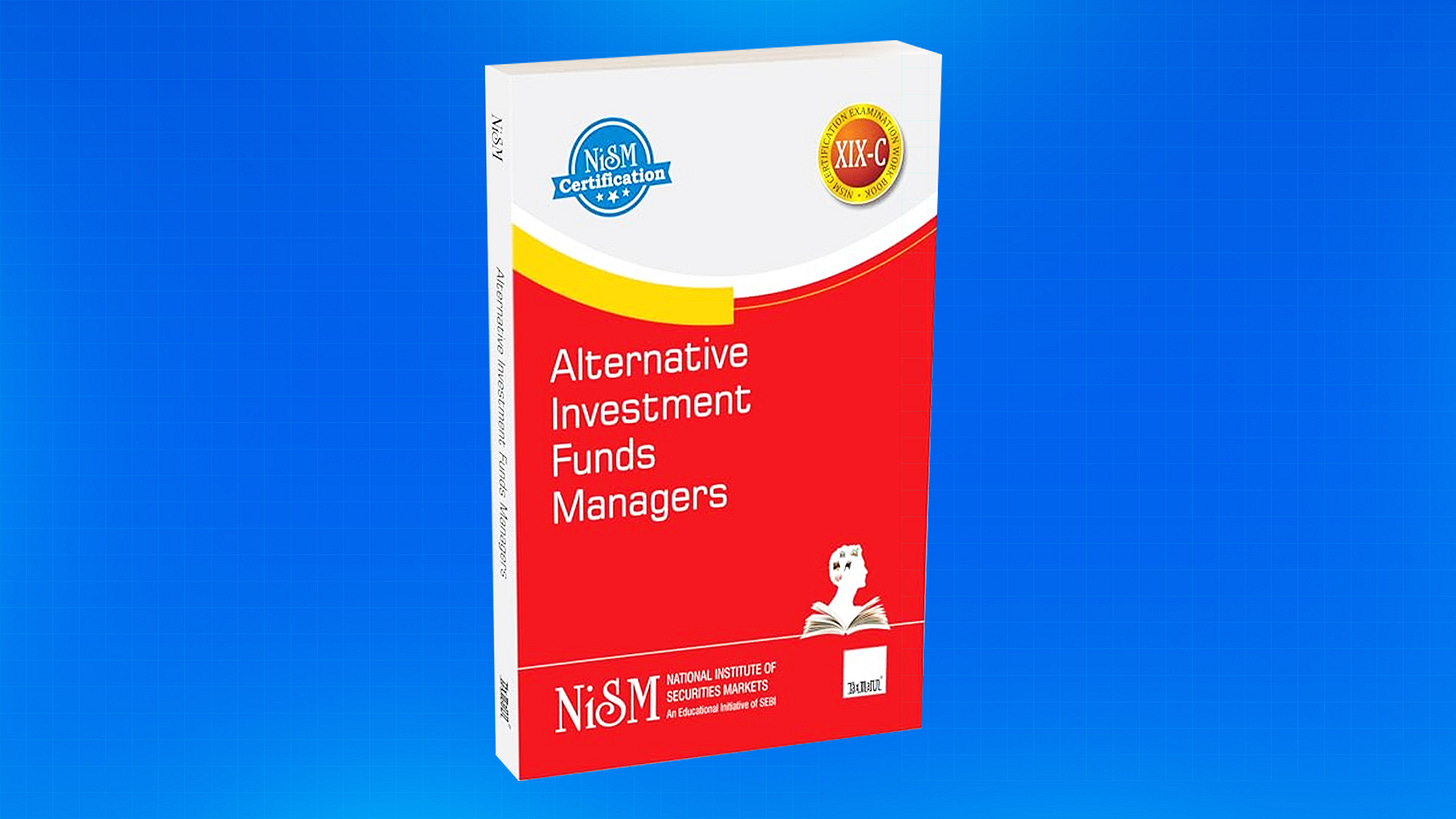My experience clearing the NISM Series XIX-C- AIF Fund Manager Exam
Some quick notes
Last month, I appeared for and cleared the NISM Series XIX-C: Alternative Investment Fund Managers Certification Examination. SEBI’s has made this certification mandatory for key investment team members at AIFs, and we've seen some fallout as many have found it difficult - not because of lack of conceptual clarity but maybe because those with 10+ years of work experience may find it difficult to sit down and study for 3-4 days at a stretch.
I attempted twice.
The first time I didn’t have time to prepare at all as I was in the middle of board meeting season and 2 new deals which meant I gave the exam without opening the book. Yet I scored 50% (if only I’d opened the book and saved myself!).
The next time I set aside 2-3 days to skim through the material and passed. So, I thought it might help others if I shared a quick note on my experience - how I approached it, and what worked.
Firstly, why this certification?
The Securities and Exchange Board of India (SEBI) mandated that at least one key personnel of the key investment team of an AIF must obtain certification from the National Institute of Securities Markets (NISM) by passing the NISM Series XIX-C exam. This initiative aims to ensure that fund managers possess a standardized level of knowledge concerning regulations, fund management activities, investment valuation norms, taxation, and other critical areas pertinent to their roles. This is not new in regulated finance as there has been an exam for PMS Fund Managers in India since a few years.
My background
I currently work at an early-stage VC fund, and while my core role is on the investment side, I also contribute to mid and back-office activities like fund reporting, valuation reporting, investor communication, and audits. Before this, I worked at a PMS fund, where I was also trained to handle operations and compliance alongside core research. These gave me a well-rounded view of what it takes to run an investment firm, so the regulatory language and framework weren’t entirely new to me.
Exam structure and objectives
The NISM-Series-XIX-C exam is designed to establish a common minimum knowledge benchmark for AIF managers and their key investment teams. It aims to enhance the quality of fund management activities in the AIF space by covering topics such as fund governance, valuation norms, investment strategies, and regulatory frameworks.
Assessment structure is as follows:
Total Questions: 120
90 multiple-choice questions (1 mark each)
6 case-based questions, each containing 5 sub-questions (2 marks each)
Total Marks: 150
Duration: 3 hours
Passing score: 60% (90 marks)
Negative marking: 25% of the marks assigned to a question for each incorrect answer, which means answering questions judiciously.
My approach
For the preparation, I relied solely on the official NISM study material, a comprehensive resource that aligns well with the exam content.
I dedicated 3-4 days to my preparation:
Day 1: This was a travel day for me as I was attending a board meeting in Chennai. But used down time between meetings, at the airport to skim through the entire study material to assess the concepts.
Day 2: Focused on the important chapters which have a higher weightage in the examination like Fee Structuring & Fund Performance, Investment Strategies, Taxation and Regulatory Framework
Day 3: Focused on the chapters which have a slightly lower weightage like AIF Structuring, Due Diligence, Legal Documents, Valuation and Monitoring
Day 4: Reviewed key topics and practiced calculations related to fees, margins, using Excel to attempt case studies
Key Focus Areas
Conceptual clarity: Understanding the underlying principles behind regulations and fund structures was crucial, especially for navigating true/false questions designed to test comprehension.
Practical calculations: Utilizing Excel to practice fee structures, hurdle rates, and performance calculations helped in efficiently tackling numerical case studies during the exam.
Regulatory frameworks: Familiarity with SEBI (AIF) Regulations, FEMA, PMLA, and other relevant regulations was essential, as they have atleast a 20-mark weightage. This is a bit dry but important nonetheless.
Final Thoughts
For professionals involved in AIF management, this is a valuable credential. I suppose going forward hiring panels at VC/PE funds will make the NISM Series XIX-C pre-certification mandatory for all hiring. All in, this is a valuable credential that reinforces and formalizes one's expertise. The exam is approachable with focused preparation, and the official NISM study material provides sufficient understanding for the examination. As always, nothing beats real work experience.
This post is authored by Siddharth Shah, an early stage deeptech investor in India. You can reach out to him via Linkedin.



